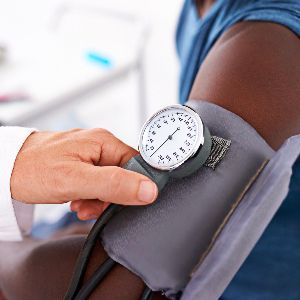Understanding type 2 diabetes
Diabetes develops when your blood sugar is too high.
Why does diabetes occur?
Diabetes develops when your blood glucose, also called blood sugar, is too high.
A hormone called insulin helps glucose from food get into your cells and be used for energy. Sometimes your body doesn’t make enough (or any) insulin or doesn’t use insulin well. Glucose then stays in your blood and doesn’t reach your cells.
Over time, having too much glucose in your blood can starve your cells and harm your eyes, nerves, kidneys, and heart.
What is type 2 diabetes?
Type 2 diabetes is also called “adult onset” diabetes, since it typically develops after age 35 (though a growing number of younger people are now developing type 2 diabetes.)
How is diabetes diagnosed?
To diagnose diabetes, your doctor may order a blood test called Fasting Plasma Glucose. These blood tests are done in the morning on an empty stomach. Glucose levels above a certain point on more than one occasion indicate diabetes.
How is diabetes treated?
Often, type 2 diabetes is associated with being overweight and having a sedentary lifestyle, so treatment focuses on diet and exercise. If lifestyle changes don't control your blood sugar, then your doctor will recommend medications to help your body use its own insulin more efficiently.
Warning symptoms
If you have type 2 diabetes and have symptoms such as confusion, weakness, or extremely high blood sugar, get medical help immediately. These symptoms may mean that you have a life-threatening condition.
Finding the right care
Start by seeing your primary care doctor.
Get regular preventive care
If you have diabetes, plan to see your primary care doctor at least once a year for checkups that include regular blood sugar tests, blood pressure checks, foot examinations for nerve and artery disease, and diabetes education.
Your primary care doctor will also make sure you get annual flu and pneumonia vaccines. People with diabetes are at greater risk for complications from these illnesses, so these are especially important.
See a specialist if you need help managing your condition
If you have difficulty controlling your diabetes, you should also see an endocrinologist (a doctor who specializes in diabetes) once or twice a year for more specialized care. An endocrinologist can teach you about new advances in diabetes care and advise you on the best way to control your blood sugar.
Don't skip annual vision and dental exams
Because diabetes can cause damage to the retina, people with diabetes should visit an eye doctor for regular (annual) eye exams.
Because high blood sugar can increase your risk for cavities and gum disease, it's important to have regular dentist check-ups (every 6 months to one year) and tell your dentist that you have diabetes.
Choosing a treatment plan
To control diabetes, it's important to monitor your blood glucose levels.
Treating diabetes
Your doctor will recommend a treatment plan based on several factors, but the main factor is the level of your blood sugar and how stable it is over time. For example, people with "well-controlled" diabetes (blood sugars less than 150 mg/dL) are often able to manage diabetes with diet and exercise and/or medication. Others who have high blood sugar levels (greater than 200 mg/dL) and other complications, despite medication, may need more specialized treatments and medications like insulin injections.
Monitor and manage diabetes
People with diabetes need regular blood tests called Hemoglobin A1c tests. These check average blood sugar levels over the course of three months. Frequency will depend on the severity of your condition, but four tests per year are typical.
If you have trouble controlling your diabetes or have complications from diabetes, you may need home monitoring to check your own blood sugar frequently. Your doctor will tell you how often, but you may need to check multiple times per day.
If you have symptoms of decreased blood flow, are over 50 years of age, have high blood pressure, or smoke, you may also receive an ankle-brachial index test. This test checks if enough blood is flowing to the legs.
Commonly prescribed medicines
Medicines for type 2 diabetes work by replacing or increasing insulin production, decreasing sugar production, and preventing the digestion of sugars. Some common medicines include:
- Metformin
- Glyburide
- Glargine insulin
- Pioglitazone
Living with type 2 diabetes
Even modest weight loss and physical activity can make a big difference.
Even modest weight loss yields big benefits
Many people with diabetes are told by their doctor to lose weight. The good news is that losing even 5%-10% of your body weight has a real impact on your health. Taking off pounds will:
- Lower your blood sugar, which may allow you to cut back on medication
- Help your body use insulin more effectively
- Control blood pressure and cholesterol, which can reduce your risk of heart attack, kidney failure, and other diabetes complications
Many people with diabetes also find nutritional counseling and personalized medical nutrition therapy helpful for learning which foods cause spikes in their blood sugar.
Get active to control blood sugar
Physical activity is an important part of managing your blood glucose level and staying healthy. Being active has many health benefits. Even a daily 30-minute walk makes a big difference in your health. Staying active:
- Lowers blood glucose levels
- Lowers blood pressure
- Burns extra calories so you can keep your weight down if needed
- Improves your mood
1 in 4 people with diabetes also have depression
Ups and downs are inevitable, but if you're experiencing feelings of deep sadness that are getting in the way of daily activities, you may have depression. On top of the emotional toll depression takes, the condition can also make it difficult to stay on track with medication, nutrition, and doctor visits.
If you think you may have symptoms of depression, you are not alone. Depression is treatable. Talk to your doctor so you can get the support you need for your physical and emotional health.




